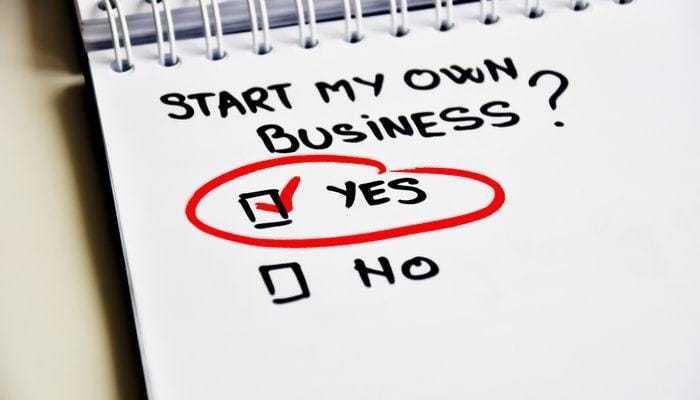Learn more about business with this collection
How to create a diversified portfolio
How to analyze stocks and bonds
Understanding the basics of investing
Build Your Target Audience
When you learn how to start a business, you’ll want to have a specific audience you want to reach, engage, and interact with. These users are going to be the same people who will read your content, buy your products, and help grow your business.
Start by identifying:
- Their demographics (age, location, gender, etc.)
- How they spend their time online and where do they reside (social media, blogs, sites etc.)
- What problems or concerns are they currently trying to solve
- What value to they expect from you
- What are some points of objection your audience might have to working with you.
6
9 reads
Run a Competitive Analysis
No matter how big or small your business is, there is virtually no company that has zero competition. The first step here is to find out who it is you are competing with exactly. Perform a Google search on your topic/niche and see who the main players in your industry are.
Are there any emerging companies that might pose a threat now or in the future? How many notable competitors do you have, that are going after the same exact audience?
5
9 reads
Find “Winnable” Keywords
You already know what keywords your competition is using to rank on Google, and you already have your persona set. By combining these two elements you can start to brainstorm potential long tail keywords and phrases you will need to start adding to your website and blog posts to make them “findable.”
A winnable keywords is defined as a word or phrase that has:
- Over 100 monthly searches
- Has a difficulty score of below 55%
- Is relevant in both context and intent with your audience’s pains, needs, or interests.
5
5 reads
Build Your Website
- Start off by thinking of a good domain name. Ideally, this should include a winnable keyword IF possible. If it’s not possible, don’t worry too much, just make sure you’re using something that represents your brand and is easy to remember,
- Next it’s time to find a hosting platform. Without this your site has nowhere to sit, and thus won’t exist!
- Now, at long last, it’s to build your website. You can go with WordPress. Its free, beginner-friendly, and has integrations with the most popular tools and hosting services.
5
4 reads
Set Up Google Analytics (GA)
Among the plethora of tools that provide in depth, high value insight for free, Google Analytics (GA) reigns supreme.
Despite its many benefits and advantages, GA does have one pretty big “flaw” especially for beginners; it can be overwhelming.
5
3 reads
Create Content
- Start by brainstorming a few topics around the keywords you found.
- Once you’re done brainstorming, pick the titles/topics you like the most and start creating a content calendar. This will help you stay on track and guide you for the next months in terms of planning and creating.
- Once your calendar is complete begin creating. Ideally, you want to have a few posts ready for your audience to read but we know time is a really valuable commodity.
5
3 reads
Optimize for On-page SEO
In order to fully optimize your pages you will need to place these keywords in:
- Your titles
- Your URL
- The headers throughout your page/post
- Image alt tags (search engine crawlers cant see images, so you will need to add a title to each one of you images to help crawlers understand what the image is about)
- The body of your page/post (make sure they fit in naturally throughout the text)
- Anchor text in internal links to other relevant pages or posts on your site
- Your meta tags — This is the abstract or summary, of the page and is often your first chance to catch your audience’s attention.
5
3 reads
Optimize for Off-page SEO
Contrary to on-page SEO, off-page SEO has to do with optimization elements that reside externally (not on your pages.) The most common element here is link building (or backlinking.) This is the process of acquiring hyperlinks from other websites to your own site, pages, or blog. The more links from high ranking websites, the better your site will look in the eyes of Google.
The easiest way to begin is to just create high quality content. The more researched, valuable, and quality driven your posts are, the greater the chance of them being linked back to by other websites.
5
1 read
Social Media Marketing
Start by answering the following questions:
- On which social media platform does my target audience spend most of their time? (Facebook, Twitter, Instagram, YouTube, LinkedIn, etc.)
- How many hours a day do they spend on social media?
- What kind of posts to they like to see (plain images, links, videos etc.)
- What would make them engage with my post (like, share, comment.)
- What time of day do they frequent the platform?
- How many times a day to they visit the platform?
So now that you have the answers to these questions you are ready to start creating social profiles.
5
3 reads
CURATED BY
More like this
9 ideas
6 ideas
12 ideas
Read & Learn
20x Faster
without
deepstash
with
deepstash
with
deepstash
Access to 200,000+ ideas
—
Access to the mobile app
—
Unlimited idea saving & library
—
—
Unlimited history
—
—
Unlimited listening to ideas
—
—
Downloading & offline access
—
—
Personalized recommendations
—
—
Supercharge your mind with one idea per day
Enter your email and spend 1 minute every day to learn something new.
I agree to receive email updates

